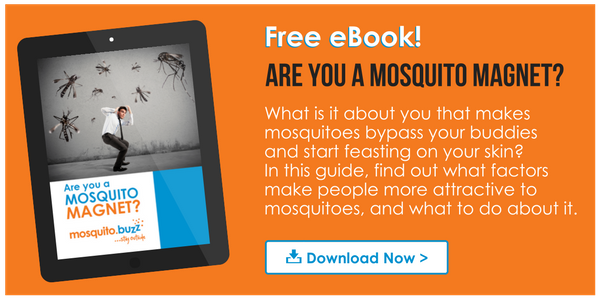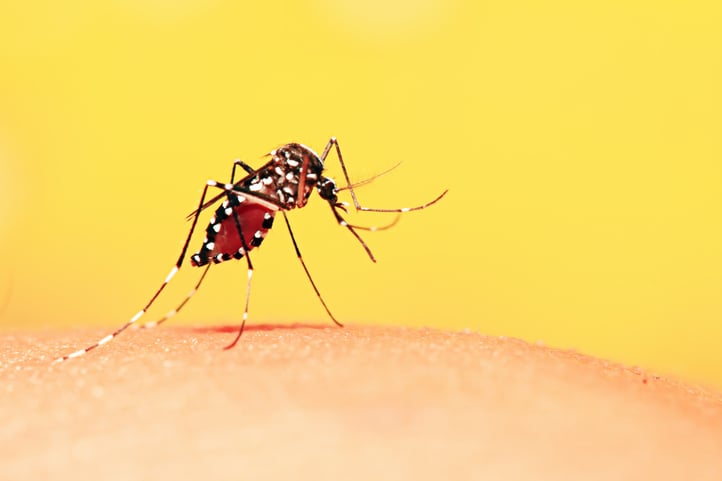
Unless you'd prefer to be a recluse all Summer long, you're probably gonna get a few mosquito bites. Unfortunately, it's an inevitable part of life.
While some things you've heard about avoiding mosquitoes are true, such as wearing certain clothes or using an outdoor fan, there are a bunch of other ideas that are just baloney.
Here are 8 common mosquito myths, debunked.
Myth #1: All mosquitoes bite
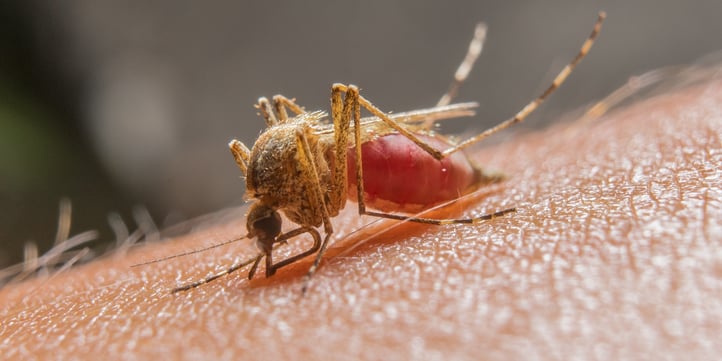
When you're swatting away skeeters instead of enjoying the outdoor air, it might feel like every last one of them wants your blood. But of the species that do feed on humans, only the females actually bite.
While male mosquitoes feed solely on plant nectar, female mosquitoes have the added dietary requirement of human or animal blood. That's because they need the protein in our blood to produce their eggs, thus keeping the family tradition of irritating humans alive and well.
Myth #2: A biting mosquito will explode if you flex

Some myths sound too good to be true. This is one of them.
Apparently, if a mosquito is biting you and you flex that muscle, the mosquito will explode. Despite how strangely satisfying that would be to see, the only way to make a mosquito physically burst from too much blood is to sever its ventral nerve cord. Unfortunately, this cannot be done by simply flexing your guns. Bummer!
Myth #3: Bats are a solution for mosquitoes
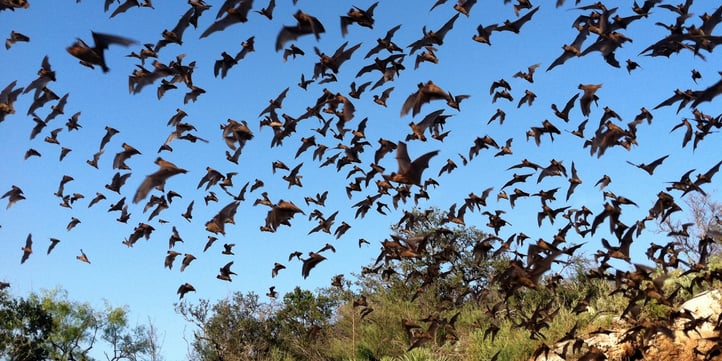
It has long been thought that since bats eat mosquitoes, they must be an effective solution for controlling them.
If you were to fill a room full of bats and mosquitoes, then sure, the bats will probably go to town on them. However bats aren't too fussy; they eat plenty of other insects, including beetles and moths. In a regular setting, mosquitoes make up less than 1% of a bat's diet, so this supposed solution isn't a very good one.
Myth #4: Citronella can protect you from mosquito bites

There's a tiny bit of truth to this myth. Citronella products like candles or torches might protect you for a little while... within a limited radius... if there's no wind.
Citronella has a very strong smell which helps mask our own odours that attract mosquitoes. But if you've got a big backyard and there's a breeze, forget it - citronella anything isn't going to help you.
RELATED > A Guide To Repelling Mosquitoes: What Doesn't Work
Myth #5: Mosquitoes like 'sweet' blood

How many times have you heard someone say "Mosquitoes love me... it'must be my sweet blood" ?
While mosquitoes do seem to bite some blood types more than others, it has nothing to do with the perceived sweetness of our blood. Mosquitoes are attracted to the CO2 and lactic acids we produce, and gravitate toward us because of it. The more of these you produce, the more likely you are to be a target.
RELATED > Why Some People Get More Mosquito Bites Than Others
Myth #6: Mosquitoes die after they bite you
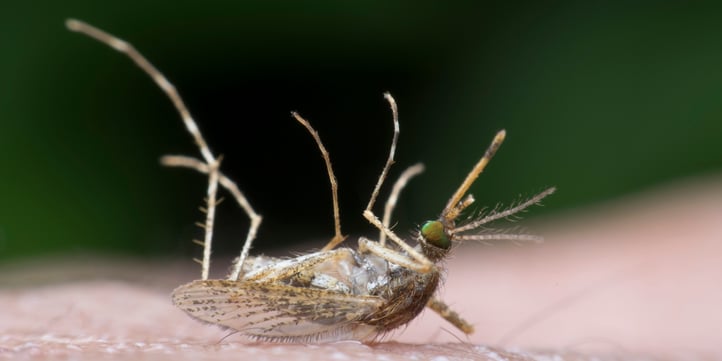
Since bees sometimes die after they sting, some people assume that mosquitoes are subject to the same fate.
But alas; mosquitoes bite, not sting. Instead of dying, the female mosquito does quite the opposite. Post-bite, off she goes to lay her eggs, birthing even more blood-sucking mosquitoes for you to avoid.
Myth #7: You can't contract anything in North America
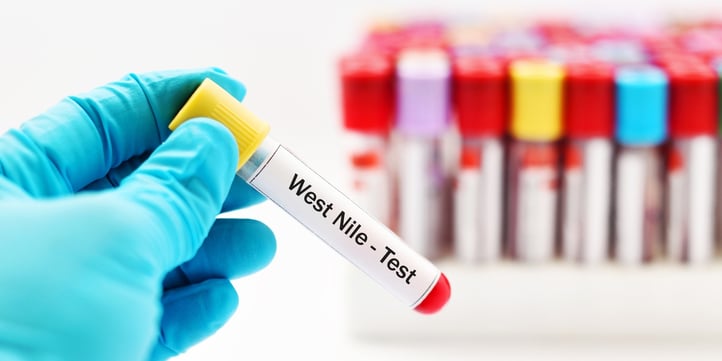
Hopefully by now this myth isn't a common school of thought.
Malaria is still the most deadly mosquito-borne infection, and thankfully isn't present in North America. But even though we have a much colder climate than Africa or South America, here in Canada we're still at risk of contracting other infections.
West Nile Virus for example can be been found in Canada, particularly in Ontario and Manitoba. There were 104 cases last year, and the numbers have been fluctuating greatly over the last few decades.
RELATED > 6 Diseases Spread By Mosquitoes
Myth #8: The more blood they draw, the bigger the welt
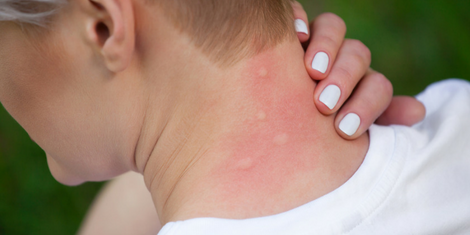
There's a common misconception that the longer a mosquito bites you - or the more blood they draw - the bigger the welt.
The size of the leftover bite actually has nothing to do with the amount of blood that got sucked up. The reason we get welts in the first place is because after the mosquito sticks her proboscis in our skin, she injects some saliva to make our blood a little thinner and easier to draw. Her saliva is what transfers diseases and causes a welt to swell up, and the way our immune system reacts to it dictates the size of the welt.
RELATED > How Does A Mosquito Bite... And Why?
Effective Mosquito Control?
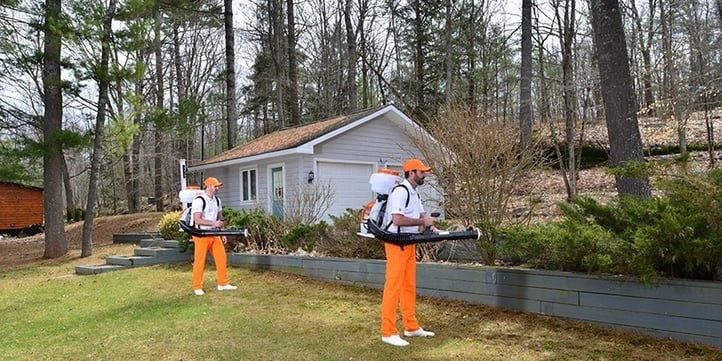
If mosquito bites are just not your thing, talk to us.
We provide effective barrier protection for your property or special event, so you and your guests can spend less time avoiding bites and more time enjoying yourselves.
For more mosquito news and mosquito bite prevention tips, follow us on Facebook.


